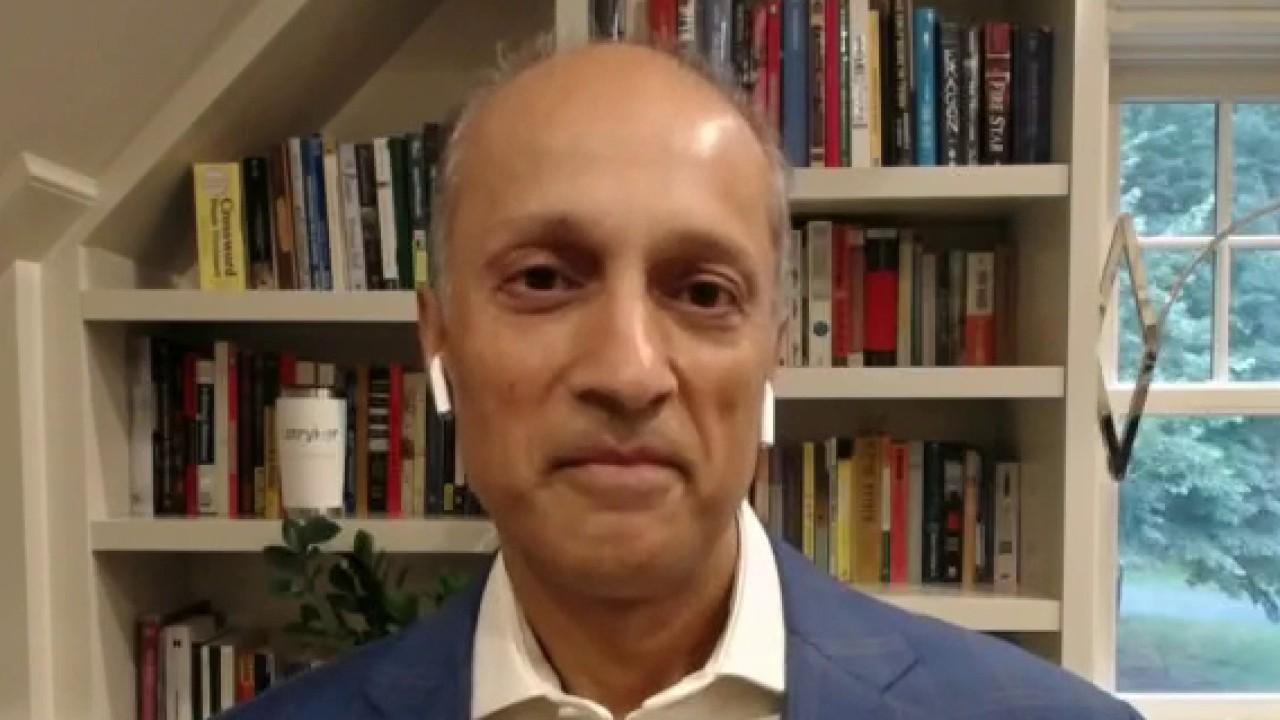Covid-19 shuttered more than 1M small businesses. Here's how 5 survived
Owners are re-examining their strategies and making tough decisions about how to adapt
Eden Park Illumination Inc. had one product to sell before Covid-19: an ultraviolet light that distinguished real diamonds from fakes.
The spread of a deadly virus across the globe shifted the focus of the tiny Champaign, Ill., startup to another ultraviolet light application that it had not planned to introduce for at least two years. This one would disinfect crowded spaces.
Within weeks, the 10-person company began shipping prototypes. Eden Park has since delivered more than 1,000 of the lights and added a dozen workers, including a head of manufacturing.
"We have pivoted and put all our attention on this," said Eden Park Chief Executive John Yerger, who joined the company in February to help commercialize technology developed at the University of Illinois. "We are now profitable. We are about 10 times bigger in terms of sales."
The coronavirus pandemic is creating new opportunities for some small businesses even as it raises costs and devastates sales for others. It is prompting many to re-examine their strategies and make tough decisions about how to adapt.
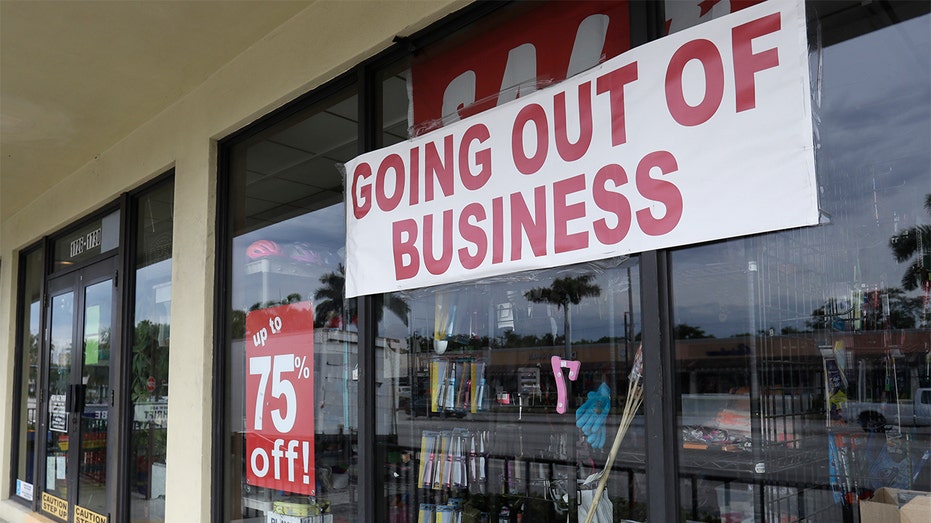
A store with a "Going out of Business," sign is shown in North Miami Beach, Fla. (AP Photo/Wilfredo Lee, File)
One seller of professional and college team sports apparel stuck to what it did best, gambling that gear with logos would still sell during a sports drought.
A decades-old furniture maker ramped up efforts to sell online instead of largely relying on its showrooms. A restaurant supplier boosted production of tamper-evident labels for home deliveries. An insurance brokerage sold smaller policies that are less profitable, but easier to get done.
THE SIX PS THAT ARE CRUCIAL IF YOU WANT TO TAKE YOUR BUSINESS TO THE NEXT LEVEL: DAVE RAMSEY
"Firms that are changing now are making changes to survive," said Jacqueline Kirtley, an assistant professor at the University of Pennsylvania's Wharton School. What they do after the pandemic ends, she said, "will tell us whether they pivoted or just fought the fire and survived."
Nearly one-quarter of small businesses have added products or services they believe will sustain long-term growth, according to a June survey for The Wall Street Journal by Vistage Worldwide Inc., an executive coaching firm. Twelve percent said they had pivoted temporarily to produce products and services to meet customer needs, according to the survey of more than 720 firms with $1 million to $20 million in revenue.
HOW HARD HAS CORONAVIRUS HIT SMALL BUSINESSES IN YOUR CITY?
The stakes are rising. More than 150,000 Americans have died from Covid-19. Its spread has forced many small firms to cease or curb their operations.
As many as 1.4 million small businesses closed their doors or temporarily suspended operations in the second quarter, according to Oxxford Information Technology Ltd. in Saratoga, N.Y., which tracks more than 26 million U.S. businesses with less than $10 million in annual revenue. Oxxford expects that as many as 4 million small businesses could be lost in 2020.
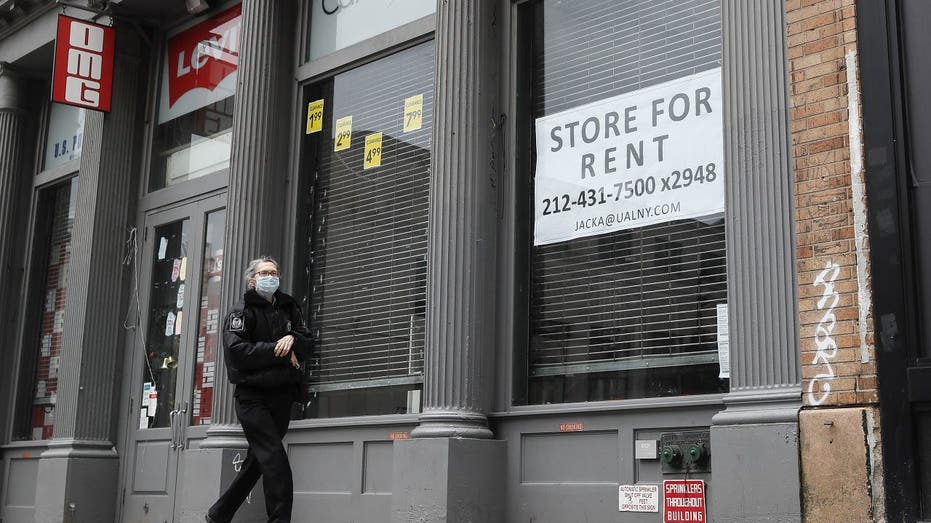
In this April 27, 2020 photo, a pedestrian passes a storefront available for rent on Broadway south of Canal Street in the Manhattan borough of New York. (AP Photo/John Minchillo)
Increases in Covid-19 cases in much of the country and fears of new outbreaks are dashing hopes of a quick recovery. The damage was evident in data released this week showing the U.S. economy shrank by more than 9% in the June quarter, the steepest in records dating to 1947.
The number of people working at companies with fewer than 500 employees also fell 10.8% in June from its February peak, according to an analysis of ADP payroll data by Moody's Analytics.
Here is a look at the choices made -- and the lessons learned -- by Eden Park and four other small U.S. businesses trying to navigate through the crisis.
Focus on What Sells
When Mr. Yerger joined Eden Park, he believed using UV lights to cure 3-D printing components had the greatest immediate potential to make money. Then, in March, he visited a UV light conference, just as the Covid-19 outbreak was making headlines. "The interest in our product was just through the roof," he said.
PPP ROUND 2 PROPOSAL TARGETS SMALL, HARD-HIT BUSINESSES
Ramping up production required shifting the culture of the company, which had operated like a research lab, to focus on commercialization. Eden Park started mapping its production process and adding automation where it could, mostly with equipment developed in-house.
There are also unknowns about how effective the lights are in curbing the spread of Covid-19. Mr. Yerger, 59, believes the lights will make it easier for people to meet safely in densely-packed areas, though effectiveness diminishes with distance.
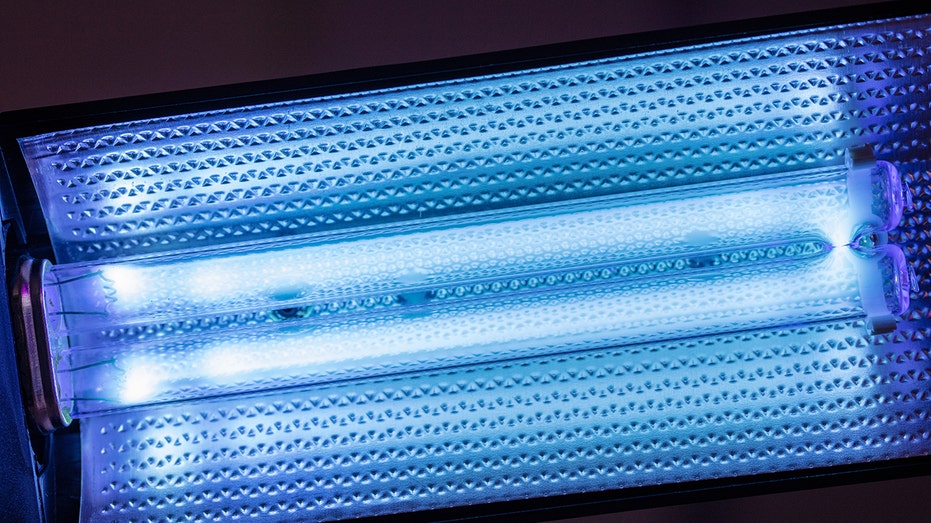
UVC G23 fluorescent bulb. (iStock)
"It's part of a combination of solutions. We don't claim to be the only thing the world needs."
Mr. Yerger expects demand for the lights to continue even if a vaccine curbs Covid-19's spread. "This kills any virus, any bacteria," he said. "Right now, we are putting our resources on this product," he added. "We are not going to abandon the others, but we think it will be a lot of years that this will be very viable."
Stay Focused on What You Know
Daniel McGinnis, the 60-year-old co-owner of Bleacher Bums, a retailer of college and team sports apparel, decided to stick to what he knew best, even as government-mandated shutdowns forced him to temporarily shut his five Pennsylvania and Maryland stores.
"It's going to be tough to get through this," said Mr. McGinnis in May, with store reopenings still weeks away. "If there's no in-season, our demand will be significantly less."
WOULD SECOND PPP SAVE COMMERCIAL TENANTS?
Mr. McGinnis stocked up on logoed neck gaiters and bottles of hand sanitizer to sell to fans of the Philadelphia Eagles, Ohio State Buckeyes and other teams. But he mostly stuck with the hats, sweats, jerseys and jackets he's sold for 33 years.
"We are very focused," said Mr. McGinnis, who received a forgivable loan of less than $100,000 from the Paycheck Protection Program, a federal coronavirus rescue program. "I am a sports team fan shop."
Sales surged when Bleacher Bums stores reopened in June. At one store, the number of transactions jumped 50% versus a year earlier while average transaction size remained the same. Neck gaiters disappeared in a heartbeat.
"You're selling an emotional attachment people have to their team," Mr. McGinnis explained. Sales remain strong as some teams resume play, he added.
Online sales jumped during the store closures, but fell far short of making up for lost revenue. They fell significantly once stores reopened, but remain above last year's levels.
Bleacher Bums has brought back roughly 40 of its 60 employees. Shortened mall hours mean lower payroll costs, boosting profits.
"It was pent-up demand, and it's still continuing," Mr. McGinnis said. "Was I surprised that it happened? Yes."
NEW YORK RESTAURANT OWNER CANCELED FOR FLYING TRUMP FLAG
Mr. McGinnis likens running his business during the pandemic to riding a roller coaster. He'd be thrilled if sales remained at current levels, but has a pit in his stomach because of spiking Covid-19 cases in other states. "I am very pessimistic about the next couple of months. I wish I didn't have to be that way."
It's Not Too Late to Go Digital
Dwight Sargent, founder of Pompanoosuc Mills Corp., a 47-year-old contemporary furniture manufacturer and retailer, was skeptical about online retailing when social-distancing restrictions shut his company's eight retail showrooms and its East Thetford, Vt., workshop. Then the company plunged, head first, into digital marketing.
With its survival at stake, in March, Pompanoosuc laid off almost its entire 115-person workforce, including some employees who had been with the company for decades. Almost overnight, it made changes that were long overdue, but would have otherwise taken years.
Showroom managers videotaped rudimentary showroom tours on their iPhones, then posted them on the company's website so customers could shop online. Pompanoosuc sold about $210,000 of deeply-discounted furniture in three weeks and closed the first Facebook Messenger order in its history. Some of the money went to laid-off employees, who had received partial paychecks at the time of the layoffs because money was short.
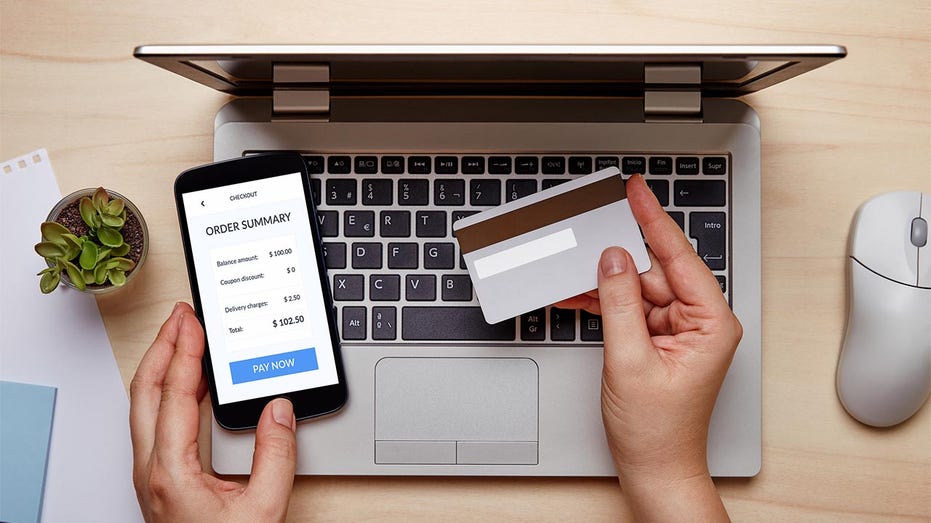
Woman making online credit card payment (iStock)
Mr. Sargent, 70, photographed dining tables, chairs and desks in his flagship showroom at company headquarters, offering them online with immediate delivery and discounted pricing.
It came as a surprise and delight to Mr. Sargent when one customer snapped up a king-size bed and two night tables he had photographed just two weeks earlier.
Pompanoosuc received an $845,000 forgivable PPP loan and a $10,000 grant and $150,000 loan from the Small Business Administration's disaster relief program. That money helped the company bring back workers, step up advertising and buy a new cutting machine. Pompanoosuc offered all of its workers their jobs back, handing out bonuses to encourage them to return. It plans to hire additional workers to staff the online chat function and someone to photograph furniture for online sale, a task Mr. Sargent would eagerly give up.
The furniture maker added an expanded set of home office desks and built prototypes for lower-priced offerings, such as step stools, coat hooks and lamps to attract first-time online customers.
3 CALIFORNIA FOOD SUPPLIERS ORDERED TO CLOSE AFTER CORONAVIRUS OUTBREAKS GO UNREPORTED
Order volume isn't quite up to last year's levels, but keeps improving. Mr. Sargent still plans to add another store in Philadelphia, but expects online to play a bigger role in the future. "Some of these things are exciting," he said. "We are so far behind."
All Hands on Deck
Dot It Restaurant Fulfillment, an Arlington, Texas, maker of labels and other restaurant industry supplies, struggled for two years to attract interest for one of its newest products, SecureIt, a line of labels that deters tampering with home food deliveries. That changed when the pandemic hit.
Dot It sold more than 860,000 rolls of the new labels in less than four months, up from just 10,000 in the prior two years. Sales also jumped for social-distancing floor arrows, acrylic dividers and "open for takeout" signs, products that didn't even exist back in January.
"We are small and nimble," said Dot It President Keri Smith. "We saw the market need and adapted to it." The business is a division of National Checking Company in St. Paul, Minn., a 115-year-old family-run producer of guest checks to take food orders and register rolls to provide receipts at the end of a meal.
The new offerings allowed Dot It, which mostly works with fast-casual eateries, to add about 15,000 new restaurants to the 38,000 the company normally serves. Some restaurant chains requested help solving other challenges, such as securing gloves and napkins. Ms. Smith hopes they will remain customers even if SecureIt sales dip when the pandemic ends.
Meeting the sudden surge in demand was a challenge for the tiny printing and fulfillment company. "There were many days that myself as president, my executive leadership team, team members from purchasing, sales and customer service were all out on the floor helping move product, pack boxes, prepare orders," said 39-year-old Ms. Smith. "It really was all hands on deck."
The new offerings helped offset a decline in orders for labels for pre-wrapped sandwiches and signs announcing monthly specials. Sales fell 10% in the second quarter, not the 50% they would have otherwise, Ms. Smith said.
Dot It laid off 25 of its 100 workers after the pandemic hit, then brought staffing back up to 90 after receiving a $900,000 PPP loan.
The struggles reinforced the need to diversify. The company is looking at selling signs and other items to plant nurseries and hospitals.
"This has taught us we need to look outside restaurants," Ms. Smith said. "I think we will come out of this a different company."
Get Simpler and Go Small
Georgetown Insurance Service Inc., an insurance agency in Silver Spring, Md., prides itself on selling complex policies to middle-market customers. But the pandemic forced the 30-person company to turn its attention to smaller policies that are easier to close.
"Two weeks ago, I wrote insurance on a bridal shop that was reopening. The premium was $5,000," said Chief Executive Remmie Butchko. "This time last year, I probably would have said, 'Thanks, but no thanks,'" he said. "Right now, we can get it done."
Georgetown's traditional business model faced major challenges due to social distancing. Decisions about complex property and casualty policies often involve in-person meetings and committee approvals. "You really have to get together and look at the exhibits," said the 51-year-old Mr. Butchko. "It's very difficult by Zoom." Some insurers also stopped sending out field inspectors to do safety reviews before they issue a quote, limiting the ability of Georgetown and others to bring in new customers.
GET FOX BUSINESS ON THE GO BY CLICKING HERE
To replace lost business, Georgetown stepped up sales of smaller, commodity-type policies that it can close under its authority, with decisions made by the business owner or a single executive, not a team. The larger, more complex policies it typically sells to contractors, manufacturers and wholesalers now account for less than 10% of new sales, down from as much as 60% last year.
Mr. Butchko's agents typically find new clients by networking at Chamber of Commerce or association meetings or by knocking on doors. Now, they send emails and pick up the telephone. "You can knock on the door all you want, but no one is going to answer," Mr. Butchko said.
The approach is working, at least for now. Sales are up 15% and profits rose 4%. "We're working in the parameters we have," said Mr. Butchko, who didn't apply for federal aid. "Now, everybody's money is green."
Mr. Butchko misses hand-delivering new policies and discussing coverage terms. "We are very eager to do what we were doing before," he said.




















